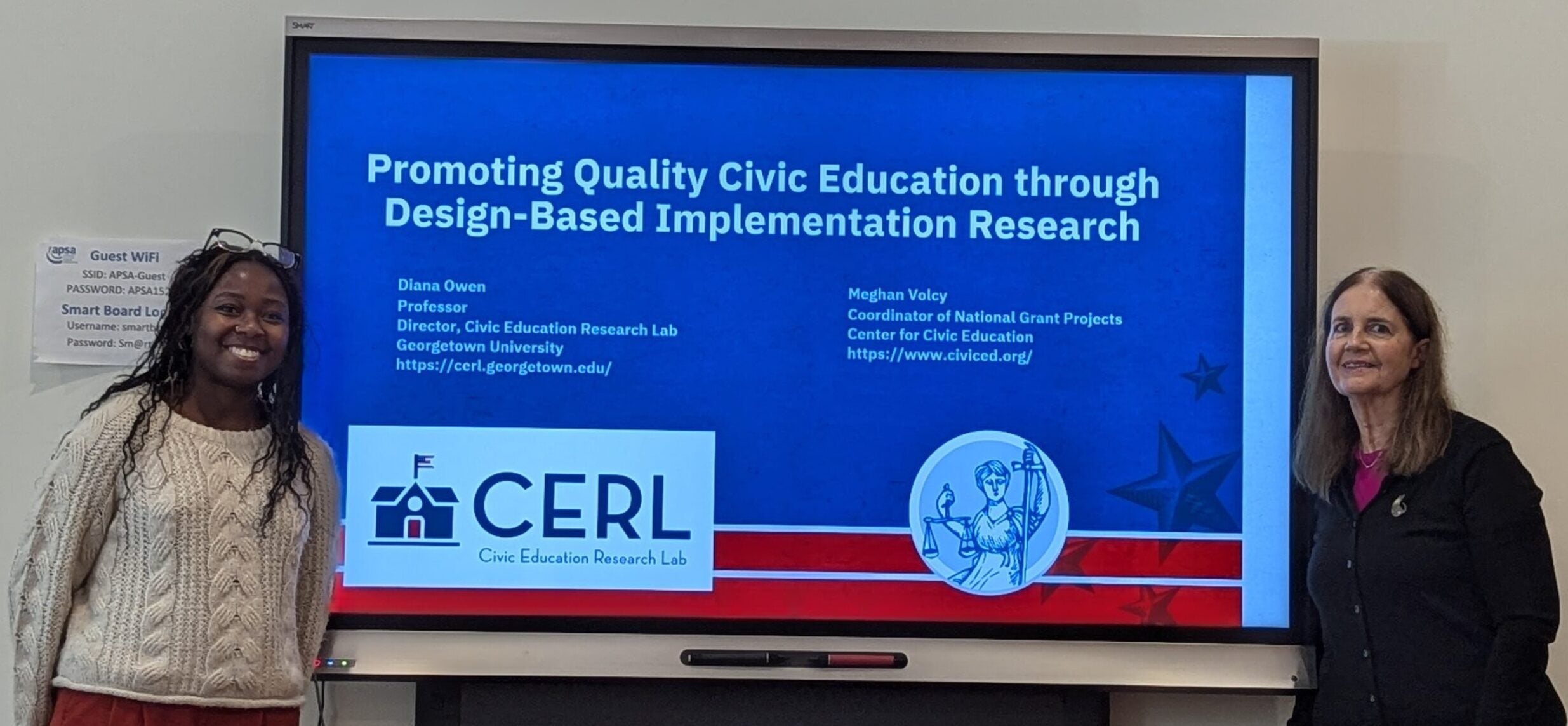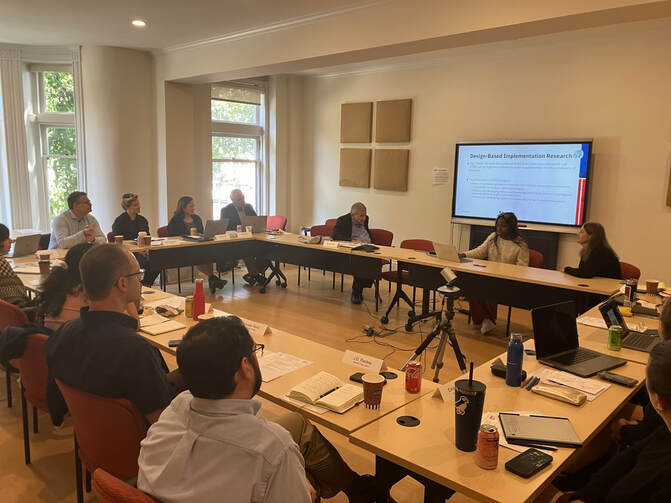CERL and the Center for Civic Education Showcase Collaboration at APSA-NCAPSA Workshop

Posted in James Madison Legacy Project Expansion News
Diana Owen, Georgetown Professor and CERL Director, and Meghan Volcy, Coordinator of National Grant Projects at the Center for Civic Education, made a joint presentation at the “Connecting Community and Classroom: Practical Considerations for Civically-Engaged Practitioners and Scholars” workshop. Successful collaborations between academics and community partners were showcased in this inaugural event. The workshop was jointly hosted by the American Political Science Association (APSA) and the National Capitol Area Political Science Association (NCAPSA) on October 5, 2024, in Washington, D.C. The day-long event was chaired by Katherine Robiadek of Xavier University; the co-leaders were Lauren Bell of Randolph Macon College and John Forren of Miami University of Ohio.
Owen and Volcy’s presentation, “Promoting Quality Civic Education through Design-Based Implementation Research (DBIR),” focused on CERL and the Center’s commitment to iterative, collaborative program design as illustrated by the James Madison Legacy Project Expansion (JMLPE). Pilot research conducted by CERL informed the development of the JMLPE teacher professional development and adaptation of the We the People: The Citizen and the Constitution curriculum for middle and high school students with disabilities, English learners, and students of color. CERL gained insights for modifying measurement tools. Research findings from the first JMLPE study showed that students with disabilities made statistically significant gains in civic knowledge, attentiveness to community affairs and issues, political efficacy, civics-related social-emotional learning competencies, and propensity for engagement. The reciprocal DBIR relationship between CERL and the Center continues with each phase of the JMLPE. View Owen and Volcy’s “Promoting Quality Education through DBIR” slide deck on the APSA Educate website.

Scholars from around the country offered inventive practices and ideas for teaching and knowledge-sharing. All of these projects have been implemented and shown to be highly effective. Tara Bartlett of Arizona State University, like Owen and Volcy, presented on a civic education project for K-12 students, “School Participatory Budgeting in Arizona: Examining Partnerships and Lessons from Three Case Studies.” Projects designed for post-secondary education were imparted that could be adapted for the secondary school classroom. Emily Sydnor of Syracuse University presented “Teaching Public Opinion through Civically-Engaged Research,” and Jayme Renfro of the University of Northern Iowa presented, “Leafing a Mark: Exploring the Intersection of Modern Tree Canopy and Historic Redlining for Inclusive Community Revitalization.” An innovative approach for academics and practitioners to share information was introduced by Jordan Tama of American University in his presentation, “New Voices in National Security: An Innovative Format for Bringing Together Scholars and Practitioners to Exchange Knowledge and Ideas.”
View all of these presentations on the APSA Educate “Connecting Community and Classroom Resource Collection” webpage.
